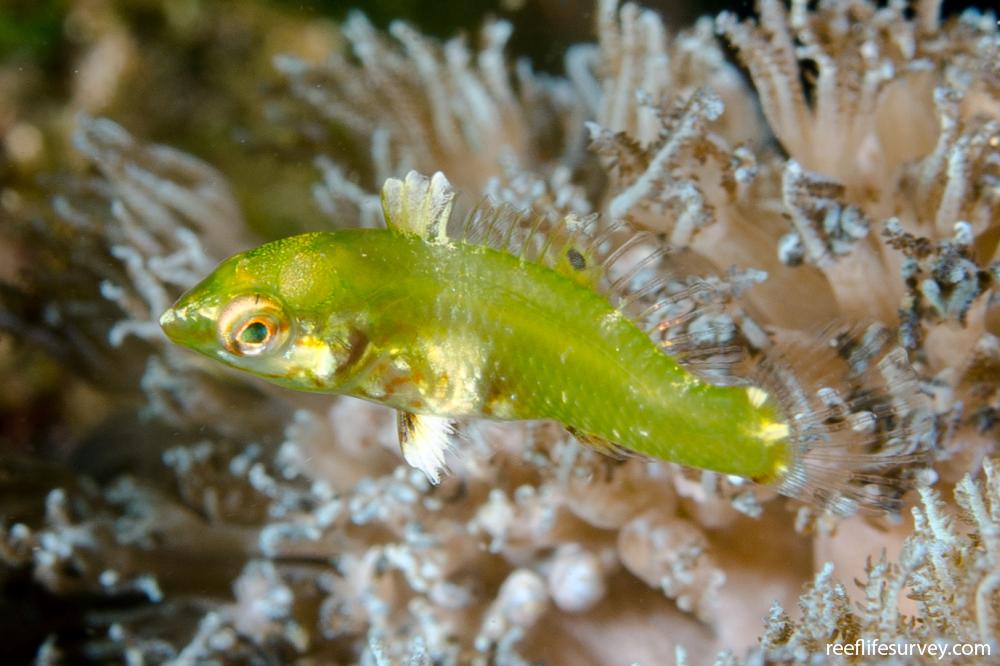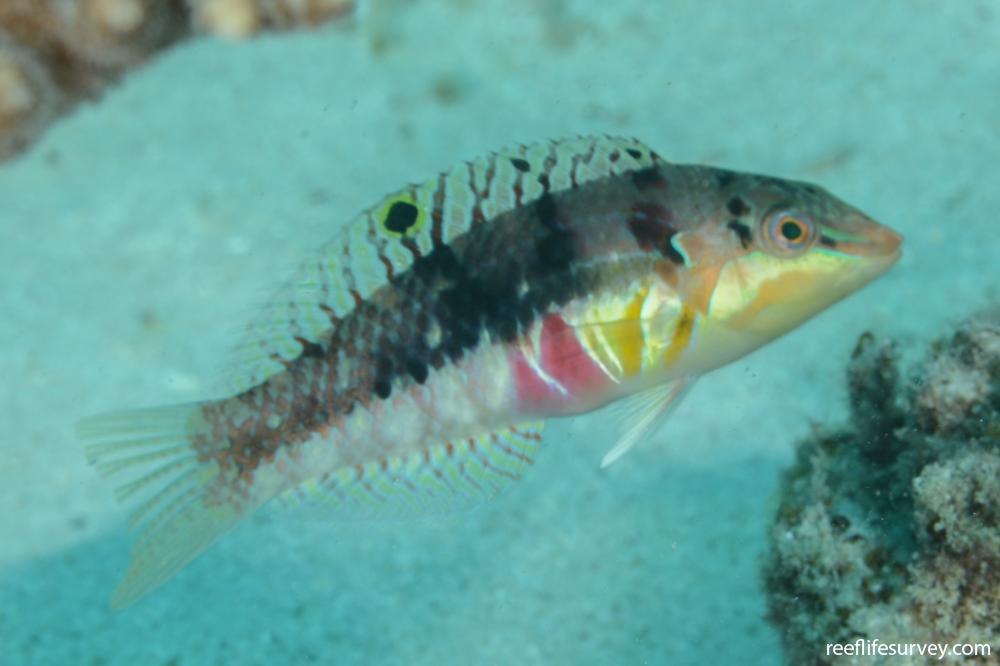Halichoeres nebulosus
Clouded wrasse | Clouded Rainbow-fish | Nebulous WrasseSimilar Species
Same Genus
Distribution
Tropical Indo-Pacific
Description
Small mottled wrasse with red lines on green head, dark blotches on side, yellow markings in front of and behind pectoral fin base, followed by a red patch on a pale belly; distinguished from similar species by red stripe on green cheek that is curved in arch. Small individuals best confirmed by presence of adults, or by carefully comparing body markings.
Information
Max Size: 12 cm
Sea Temperature Range: 16.3-31.3°C
Depth: 1-40 m
Habitat Generalization Index: 21.06
Also referred to as the SGI (Species Generalisation Index), this describes the habitat niche breadth of the species. Species with values less than 15 are found in a relatively narrow range of reef habitat types (specialists), while those over 25 may be found on most hard substrates within their range (generalists). Learn more here.
Conservation and Rarity
IUCN Status: Least Concern
Occurrence: Frequent (16.8% of sites)
Occurrence describes how often the species is found on surveys within its distribution. It is calculated as the % of reef sites surveyed by RLS divers across all the ecoregions in which the species has been observed
Abundance: Many (14 per transect)
Abundance is calculated as the average number of individuals recorded per RLS transect, where present.
Edit by: Joe Shields

























































![Halichoeres sp. [orientalis]](https://images.reeflifesurvey.com/0/species_c9_574515caa4dd2.w400.h266.jpg)

